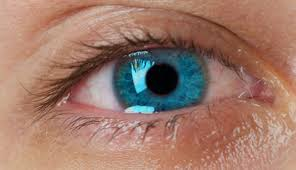
 Understanding Eye Allergies
Understanding Eye Allergies
When you say, “I have allergies,” people expect you to sneeze. But your nose isn’t the only part of your body that gets hit during an allergy attack. You can also have red, swollen, and itchy eyes.
The usual suspects — pollen, dust mites, pet dander, feathers, and other indoor or outdoor allergens — can set off eye allergy symptoms. To treat them, find out what triggers them and stay ahead of the symptoms. Eye drops and other medications can bring relief.
Eye Allergies Triggers
Eye allergies are also known as “allergic conjunctivitis.” Just like any other allergic reaction, they are caused by a misfiring of the immune system, the body’s natural defense mechanism.
When you have allergies, your body reacts to things that aren’t really harmful, like pollen, dust mites, mold, or pet dander. It releases histamine, a chemical that causes swelling and inflammation. The blood vessels in your eyes swell and your eyes get red, teary, and itchy.
You can be allergic to:
Pollen from grasses, weeds, and trees. These are the most common kinds of eye allergies and are called seasonal allergic conjunctivitis.
Dust, pet dander, and other indoor allergens. These eye allergies last year-round and are called chronic (perennial) conjunctivitis.
Makeup, perfume, or other chemicals can trigger eye allergies called contact conjunctivitis.
An allergy to contact lenses, called giant papillary conjunctivitis, can cause bumps on the inside of your eyelid, making your eyes sensitive and red both with and without wearing your contact lenses.
Symptoms to Watch For
You may start to have symptoms as soon as the eyes come in contact with the allergen, or you may not have symptoms for two to four days.
Symptoms of eye allergies include:
Red, irritated eyes
Itchiness
Tearing or runny eyes
Swollen eyelids
Soreness, burning, or pain
Sensitivity to light
Usually you’ll also have other allergy symptoms, such as a stuffy, runny nose and sneezing.
Treating Eye Allergies
Some of the same medicines you use for nasal allergies work for eye allergies. For quick relief, over-the-counter eye drops and pills can help.
